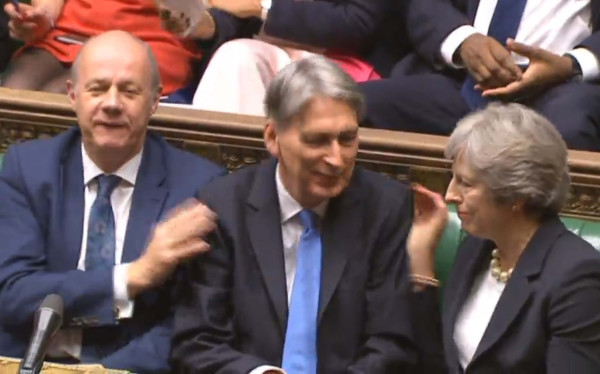

James Yardley, senior research analyst at the execution-only platform, identified five funds that have the potential to benefit from the housing stimulus and the steps the government is taking to make the UK a leader in the development and deployment of digital technologies.
Firstly, there is Woodford Equity Income, which has holdings in housebuilders Taylor Wimpey and Barratt Developments, as well as Purplebricks, the online estate agent that should benefit from the stamp duty exemption announced for first time buyers.
The manager, Neil Woodford, also invests in lots of small tech start ups and broadband company CityFibre, Mr Yardley noted.
Jupiter UK Growth, which also invests in Taylor Wimpey, was the second fund Mr Yardley identified as a possible beneficiary of chancellor Philip Hammomd's Autumn Budget.
The fund also invests in Zoopla and kitchen maker, Howden Joinery.
Like Mr Woodford, manager of Jupiter UK Growth Steve Davis likes CityFibre.
He also holds Thomas Cook, which could benefit from the freeze on the short-haul flights tax.
However Adrian Lowcock, investment director of Architas, questioned if funds exposed to housebuilders would get a boost from the Autumn Budget given the announcement of a review into the practice of hording land for development until it increases in value, known as landbanking.
Mr Lowcock said: "The big house builders fell yesterday as the chancellor indicated that the big companies would be circumvented and those with big land banks would be under review - Taylor Wimpy and Persimmon."
The third fund identified by Chelsea's Mr Yardley as getting a boost from Mr Hammond's measures was Franklin UK Mid Cap.
This mid-cap fund holds Ibstock, a brickmaker which Mr Yardley said could do well on the back of increased housebuilding, and Bellway.
It also invests in Howden Joinery as well as Homeserve, a heating installation company.
Architas' Mr Lowcock agreed that this fund should do well following the Autumn Budget but added he prefers Franklin Templeton's UK Smaller Companies fund as it accesses the true start-ups Mr Hammond was targeting.
He said the managers, Richard Bulla and Paul Spencer, tend to take a cautious approach to investing in smaller companies, very much one of making long-term investment in companies with attractive risk/reward profiles.
Mr Lowcock said: "The managers are willing to take a contrarian stance when market mispricing creates outstanding investment opportunities.
"While economic and industry drivers are important considerations, the fund is built from the bottom up, with each stock included in the portfolio on its own merit. The fund holds around 13 per cent in technology and 9 per cent in construction and real estate."
L&G UK Alpha Trust was the fourth fund identified by Chelsea's Mr Yardley as getting an uplift from the Autumn Budget.
The trust has a holding in Seeing Machines, which makes intelligent sensory algorithms that help machines to understand people.
It is being used to monitor drivers and increase safety, as well as the move towards driverless cars because it helps the machine to make instant decisions based on what is happening inside and outside the car.
Smith & Williamson Artificial Intelligence was the final fund identified by both Architas' Mr Lowcock and Chelsea's Mr Yardley as benefitting from the Autumn Budget.
This fund was launched relatively recently, hoping to tap into the opportunities created by the development of artificial intelligence.
It holds overseas stock Nvidia, a company which has a background in gaming and has since moved into automotives as a new business area.
It is currently one of the most strategically important component companies in the AI world.
Danny Cox, head of financial planning at Hargreaves Lansdown, said it is unlikely the Budget will have sufficient impact on diverse funds either positively or negatively as much of the news has already been priced in.
But when asked what funds he reckoned could benefit, Mr Cox agreed with Mr Yardley and Mr Lowcock that the Smith and Williamson fund was an interesting idea and technology funds generally should, in theory, be well placed to benefit.
But he said this type of fund is niche and investors would be better with a more diversified approach with tried and tested managers with smaller company funds such as Standard Life UK Smaller Companies.
emma.hughes@ft.com



